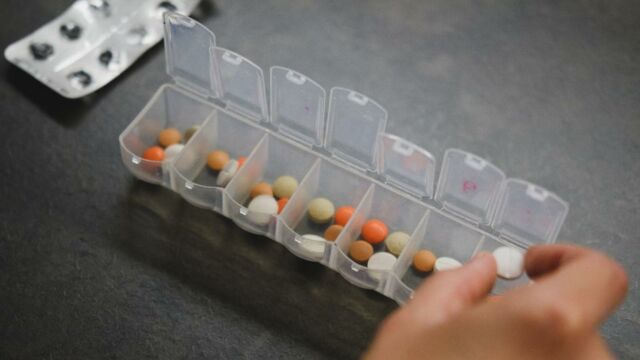COVID treatment: This inexpensive medication could cut infection by 70%

Researchers have found that a drug used for high cholesterol patients can reduce COVID infected cells by 70%.
A new study, published in the journal Frontiers for Pharmacology, has found that a licensed drug that is currently being used to treat cholesterol could be an effective treatment for COVID patients.
Discover our latest podcast
Breakthrough treatment
Researchers, led by University of Birmingham and Keele University in the UK, experimented with a range of approved drugs to find out which could be a viable treatment for COVID. They tested the drugs with human cells that were infected with the original strain, plus theAlpha and Beta variants.
More under this adMore under this adTheir findings showed that a fenofibrate, a medication prescribed to treat unusual levels of fatty substances in the blood, was the most effective and could significantly reduce the amount of cells infected by COVID by up to 70%. Dr. Elisa Vicenzi, co-author of the study said:
Our data indicates that fenofibrate may have the potential to reduce the severity of COVID-19 symptoms and also virus spread.More under this adMore under this ad
The British team is now hoping to get two more trials underway so that they can explore its efficacy against COVID further.
Other trials testing fenofibrate have also been ongoing in other parts of the world—one at the University of Pennsylvania in the US, and another at the Hebrew University of Jerusalem in Israel.
More under this adMore under this adCheap and available
The team is thrilled about their results, not only because they have identified a possible new treatment but also because thisoral drug is inexpensive and available all over the world. Vicenzi added:
Given that fenofibrate is an oral drug which is very cheap and available worldwide, together with its extensive history of clinical use and its good safety profile, our data has global implications - especially in low-middle income countries and in those individuals for whom vaccines are not recommended or suitable such as children, those with hyper-immune disorders and those using immune-suppressants.More under this adMore under this ad
Experts believe that while vaccines are the only way out of the pandemic, the development of treatments are still key against the fight. She continued:
Whilst vaccine programs will hopefully reduce infection rates and virus spread in the longer term, there is still an urgent need to expand our arsenal of drugs to treat SARS-CoV-2-positive patients.More under this adMore under this ad
In some countries, the vaccine may not be readily available for years either, making the development of more treatments key.